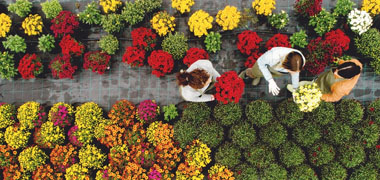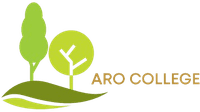
This role has a low level of AI exposure. Core skills such as adaptability, social intelligence, and complex physical tasks remain beyond the capabilities of current AI.
Explore all careersA Farmhand performs varied tasks like feeding livestock, operating machinery, maintaining equipment, and assisting with crop care in all weather.
Get qualified to work as a Farmhand with a course recognised across Australia. Speak to a training provider to learn more.















In Australia, a full time Farmhand generally earns $1,346 per week ($69,992 annual salary) before tax. This is a median figure for full-time employees and should be considered a guide only. As you gain more experience you can expect a potentially higher salary than people who are new to the industry.
 Courses.com.au Team
Courses.com.au Team
There are currently 108,500 people employed as farm workers in Australia and this number is expected to rise slightly in the next five years. Work can be found across all states of Australia, but mostly in rural or regional areas.
Source: The Labour Market Information Portal – 2019 Occupation Projections
 Courses.com.au Team
Courses.com.au Team
If you’re thinking of becoming a Farmhand, a Certificate II or III in Rural Operations is a good place to start. You could also consider the Certificate II or III in Agriculture. You’ll learn all the skills you need to work safely in a range of farming sectors.
 Courses.com.au Team
Courses.com.au Team
Browse occupations related to Farmhand



Are you looking to step into the rewarding field of agriculture? Our selection of Farmhand courses in Canberra offers a variety of training options to jumpstart your career in farming. With 24 courses available in the Canberra area, you can gain hands-on experience and essential skills required for job roles that support the agricultural industry. This region is not only known for its natural beauty but also for its strong agricultural base, making it an ideal place for aspiring farmhands.
In Canberra, you'll find reputable training providers such as Sutton Road Training Centre and CHT, which offer targeted training programmes focused on essential skills, including courses like Maintain Chainsaws. These organisations are recognised industry leaders and are committed to helping you succeed in your farmhand career. With their comprehensive training, you can expect to learn the practical skills needed to thrive in local farming environments.
The Agriculture courses available through these providers cover a wide range of topics that cater specifically to the Canberra region's agricultural needs. Additionally, if you are interested in specific fields, courses in Livestock and Animal Production and Production Horticulture are also included in the curriculum. These study areas are vital for developing knowledge in managing animals and understanding plant production systems presented in this vibrant community.